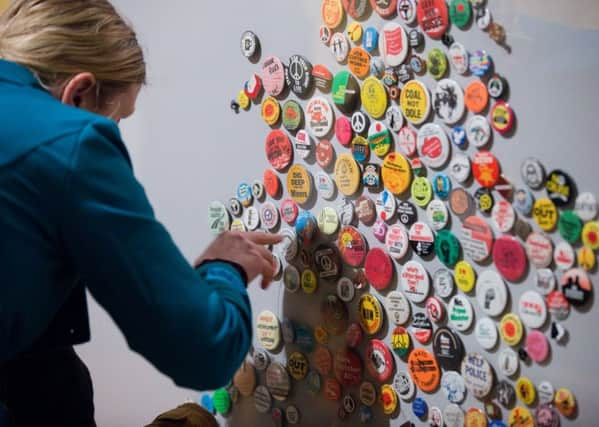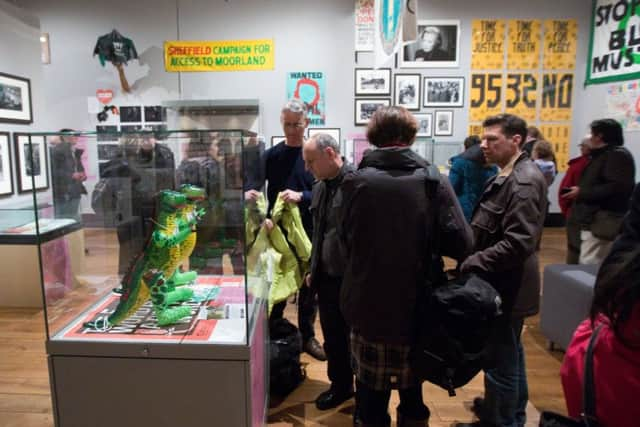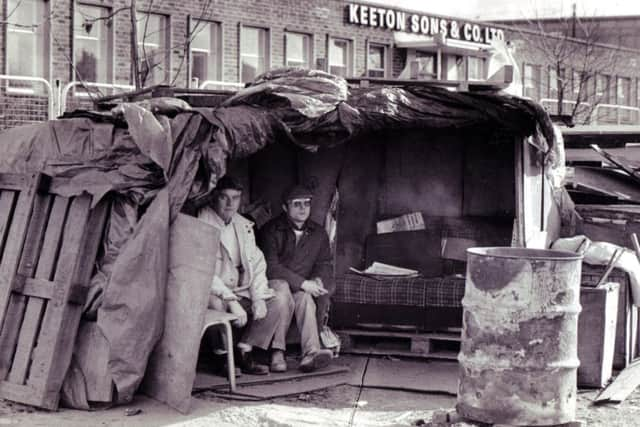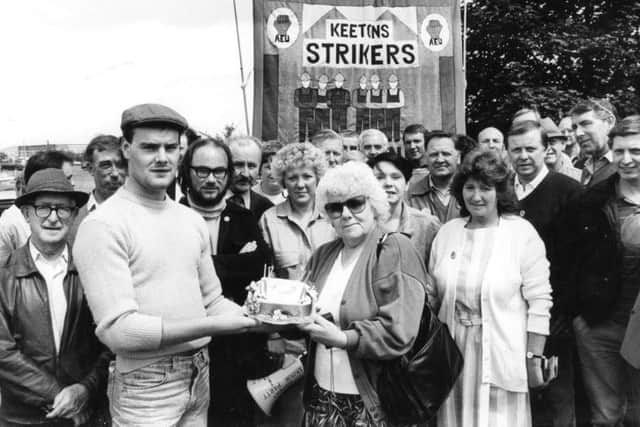Heritage: City longest-running strike that slipped out of memory


Sheffield people have a long history of standing up for what they believe in.
Large numbers of Sheffielders were involved in many of the industrial disputes that became defining moments in British working history during the last few decades of the 20th century.


Advertisement
Hide AdAdvertisement
Hide AdSome of these disputes, such as the 1980 British Steel strike and 84-85 miners’ strike, are still etched on the wider public consciousness, but there are others that have slipped from public memory.
One of these was Keetons’ strike, the longest-running industrial dispute in British history.
Keeton, Sons and Co was an engineering firm established in Sheffield in the early 20th century.
It manufactured sheet metal machine tools and was based on Greenland Road in Darnall.


Advertisement
Hide AdAdvertisement
Hide AdIn 1986 the firm attempted to lay off some of the workforce, requiring that the remaining workers man the machines of the people that had been let go.
Workers were part of the Amalgamated Engineering Union (AEU) and a secret ballot was held over whether or not workers should strike over the proposals.
The workers voted 2:1 in favour of a strike.
Once the vote was counted, 38 workers were issued with written dismissal notices and sacked.


These 38 made up the entire shop floor at Keetons and they were replaced by non-union workers.
Advertisement
Hide AdAdvertisement
Hide AdAn official AEU picket was set up outside the premises at Greenland Road.
It was manned 24 hours a day, seven days a week through a rota of eight-hour shifts - this lasted for eight-and-a-half years from 1986 to 1994.
Official strike pay of £18 per week ran out after the first year, and life was extremely hard for the strikers.
They received donations and support from other trade unionists, families and through street collections.
Advertisement
Hide AdAdvertisement
Hide AdA stall was set up outside Sheffield Town Hall three days a week to gather support for the strikers.
Support came from many groups and individuals across Sheffield who were sympathetic to their cause.
One of these groups was the Sheffield Anarchists who endeavoured to find a way they could offer practical support for the strikers.
From talking to the men on strike, they realised that offering to cover the picket every Sunday afternoon was a way to give the strikers a chance to have Sunday lunch and relax with their families.
Advertisement
Hide AdAdvertisement
Hide AdAs time went on the number of strikers reduced, some men retired while others were forced to find work elsewhere.
In the last few years of the strike only five of the original strikers remained.
The strike eventually ended in 1994, after eight-and-a-half difficult years – the demands of the strikers were never met.
To see some photographs and objects about Keetons’ strike and to find out more about activism in the city, visit Changing Lives: 200 Years of People and Protest in Sheffield which runs until July 1 at Weston Park Museum.
Advertisement
Hide AdAdvertisement
Hide Ad* In 1918 the women’s suffrage movement successfully led to the passing of the Representation of the People Act, the first step in a major electoral reform that would extend voting rights to 8.5 million women across the UK.
To mark the anniversary of this landmark development in British democracy, the Changing Lives exhibition is celebratinng how the people of Sheffield have stood up for what they believe in over the past 200 years.
The exhibitions explores Sheffield’s remarkable history of protest and activism, from the radical press of the 1700s, through to causes championed in the city today.
Changing Lives is part of a Protest and Activism season supported by the Esmée Fairbairn Collections Fund, marking the 100th anniversary of the Representation of the People Act.
Advertisement
Hide AdAdvertisement
Hide AdChanging Lives is complemented at the Millennium Gallery by Hope is Strong, a new exhibition exploring the power of art to question and challenge the world we live in.
Hope is Strong closes on June 10.